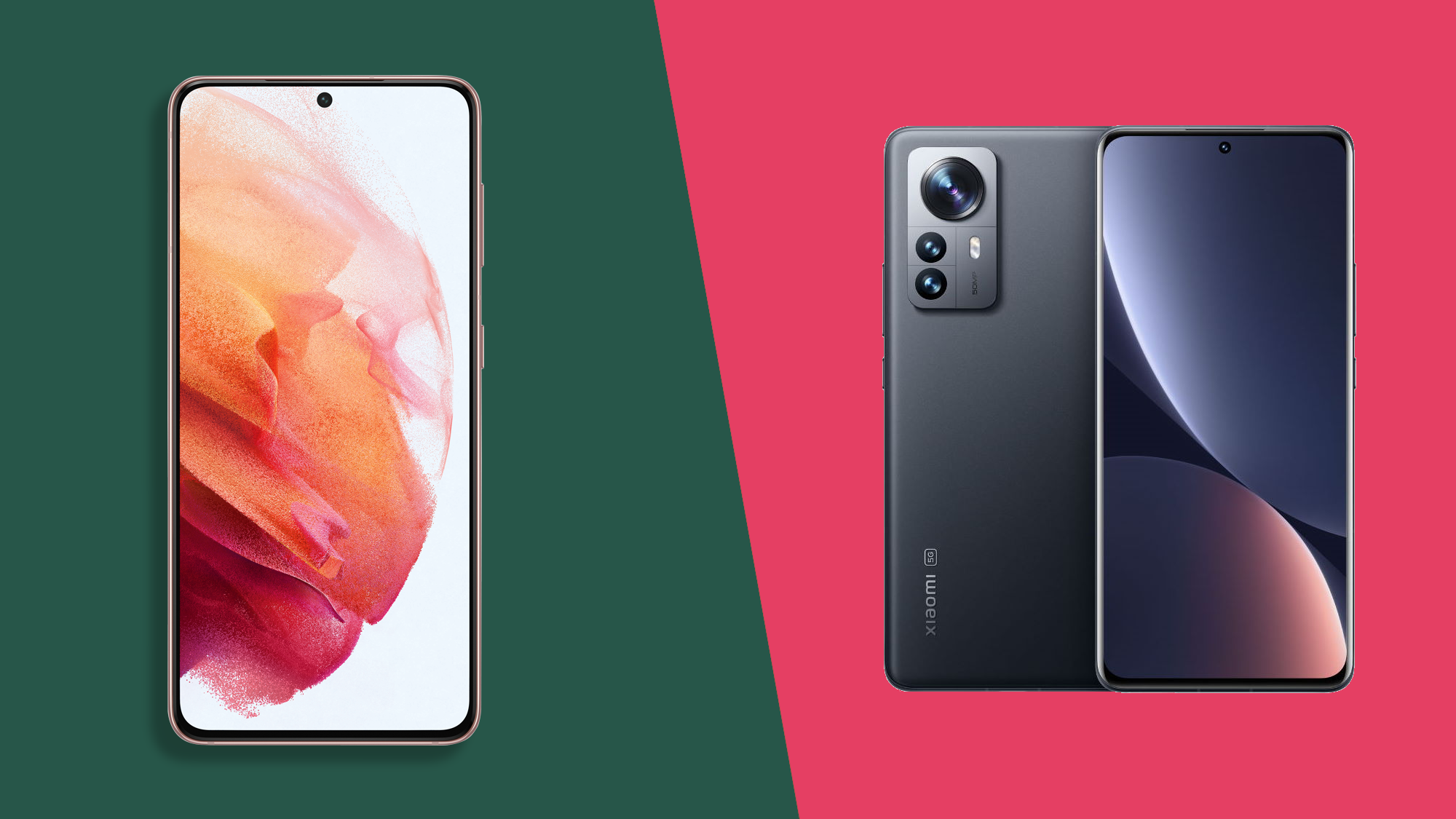
Sign up for breaking news, reviews, opinion, top tech deals, and more.
You are now subscribed
Your newsletter sign-up was successful
Flagship phones have generally been getting bigger and bolder over the years, but the Xiaomi 12 and Samsung Galaxy S22 epitomize a new emerging trend.
These handsets continue to pack flagship-level features and components, but they do so in surprisingly compact form factors, and with slightly lower price tags to boot.
The only question that really matters here is, which pint-sized flagship phone is best? For a full verdict on each phone, check out our detailed reviews linked above, but below we've can taken a deep dive into their relative specifications.
Xiaomi 12 vs Samsung Galaxy S22 price and availability
The Xiaomi 12 hit its home Chinese market on December 31. A global launch was announced on March 15, and we’re expecting to see the phone hit the UK sometime in April.
There won’t be a US launch for the phone, which makes the company’s choice to supply US pricing more than a little confusing. Prices will start from $749 (about £570, AU$1,030), for what it’s worth.
The Samsung Galaxy S22 was announced on February 9, 2022. Prices start from $799 / £769 / AU$1,249 for the 128GB model, and move up to $849 / £819 / AU$1,349 for 256GB.
As you can see, the Xiaomi 12 is set to undercut the Samsung Galaxy S22 by around $50, although they’re clearly in the same ballpark.
Sign up for breaking news, reviews, opinion, top tech deals, and more.
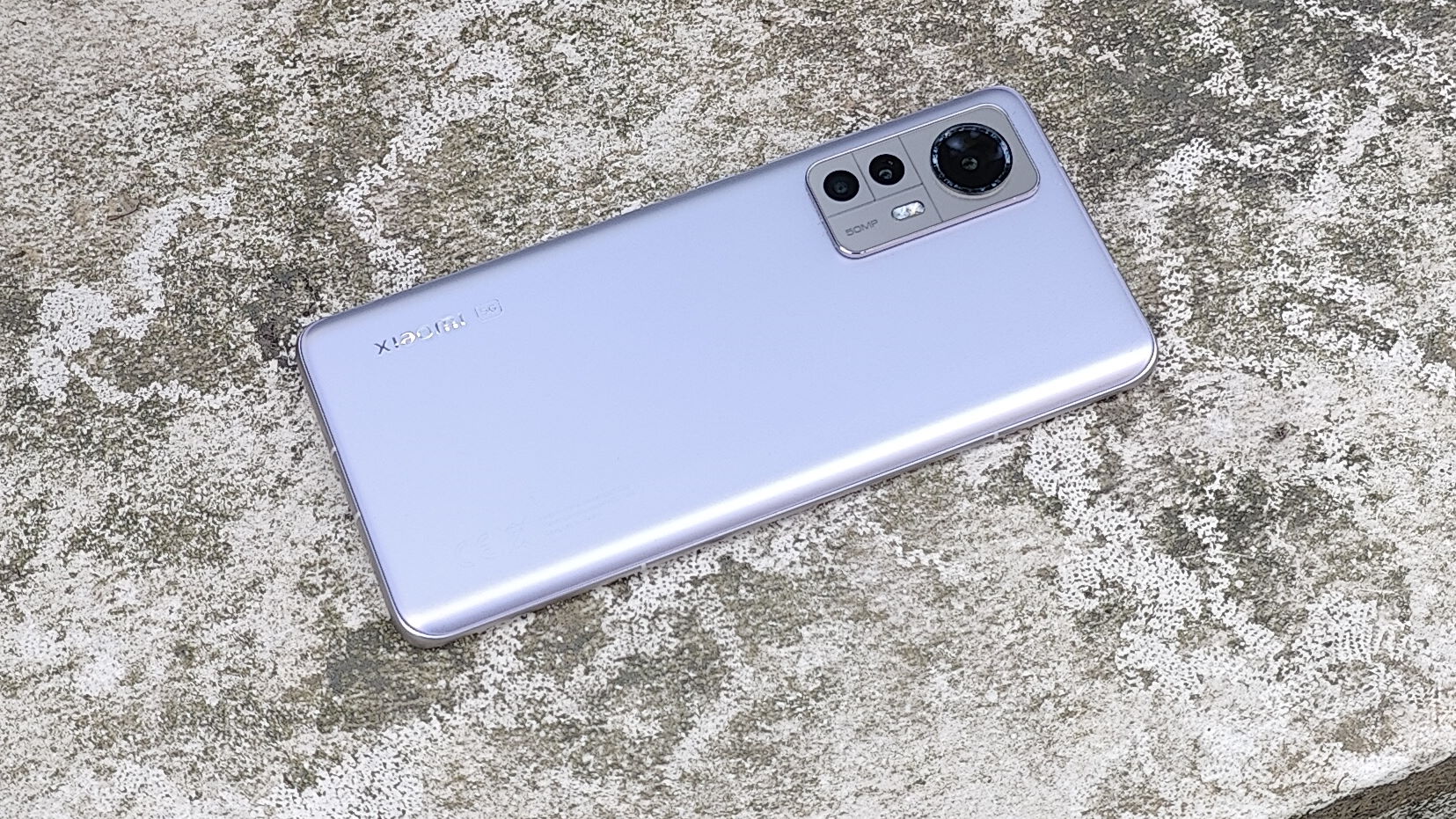
Design
Both phones are among the smallest Android flagships on the market. The Xiaomi 12 measures 152.7 x 69.9 x 8.2mm, while the Samsung Galaxy S22 comes in at 146 x 70.6 x 7.6mm.
Samsung’s phone is the smaller of the two overall, then. It’s also quite a bit lighter, at 168g rather than 179g.
We’d also probably give the nod to the Galaxy S22 on the design front. Its ‘Contour Cut’ camera module beautifully melds into a slightly squared-off metal frame. It looks quite distinctive, unless it’s sat alongside last year’s Galaxy S21, which pioneered the look.
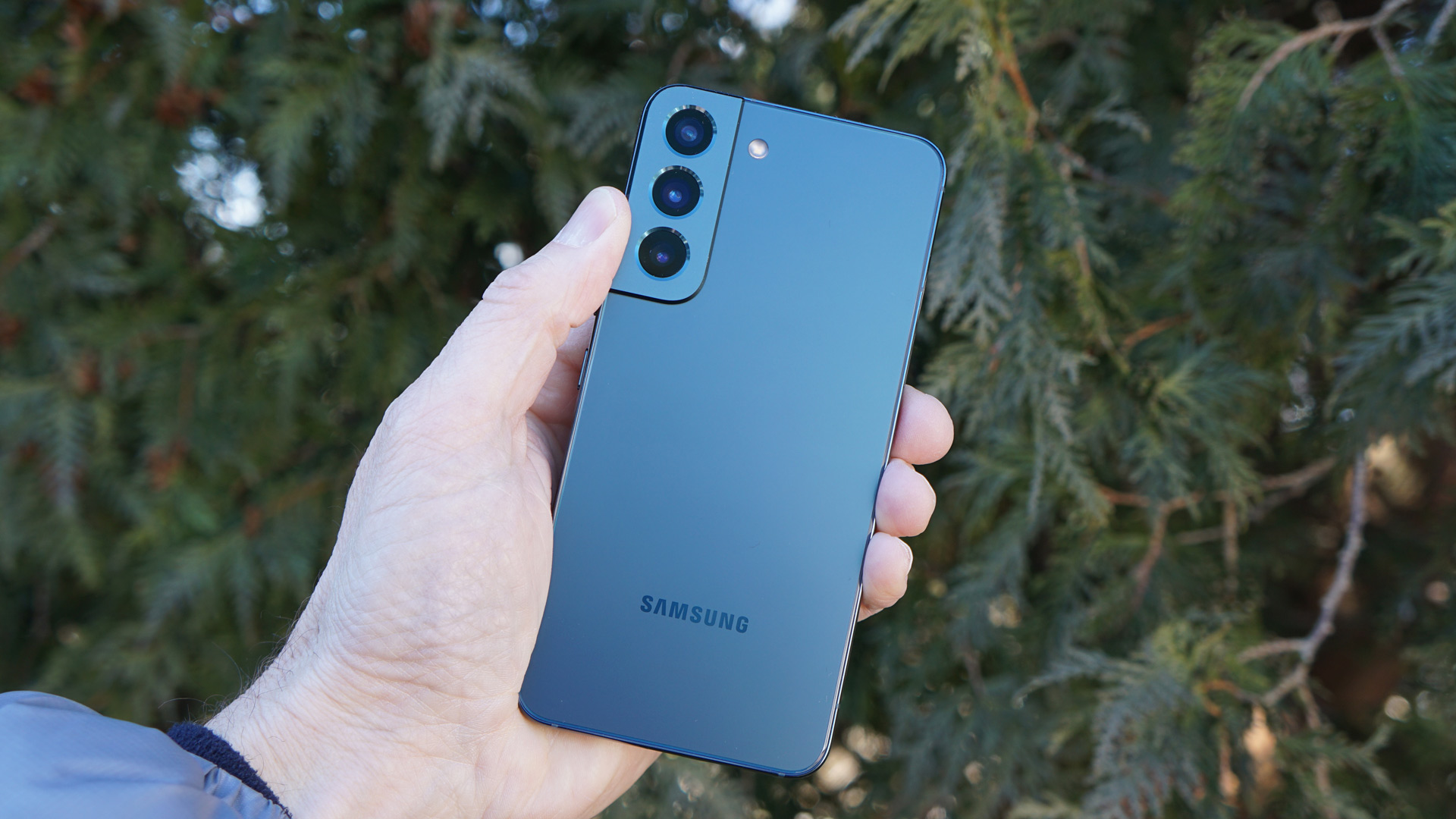
Whatever the case, it’s more special-looking than the Xiaomi 12, which has stepped back from the Xiaomi Mi 11’s appealingly stand-out design. Sure, there’s a certain minimalistic appeal to its matte finish and industrial camera module, but the basic shape is all too familiar.
The Xiaomi 12 has a curved display rather than the Galaxy S22’s flat display, which is likely to divide opinion. In general, we prefer flatter displays, as they lead to fewer false presses and visual distortions.
Display
The Xiaomi 12 screen measures 6.28 inches across, while the Galaxy S21 has a 6.1-inch display. The Xiaomi 12 screen is the bigger of the two, then.
Both screens pack 2400 x 1080 (FHD+) resolutions, both use OLEDs, and both benefit from slick 120Hz refresh rates.
Samsung’s screen gets a little brighter, with a peak output of 1300 nits. The Xiaomi 12 can push to only 1100 nits, although that’s far from dim.
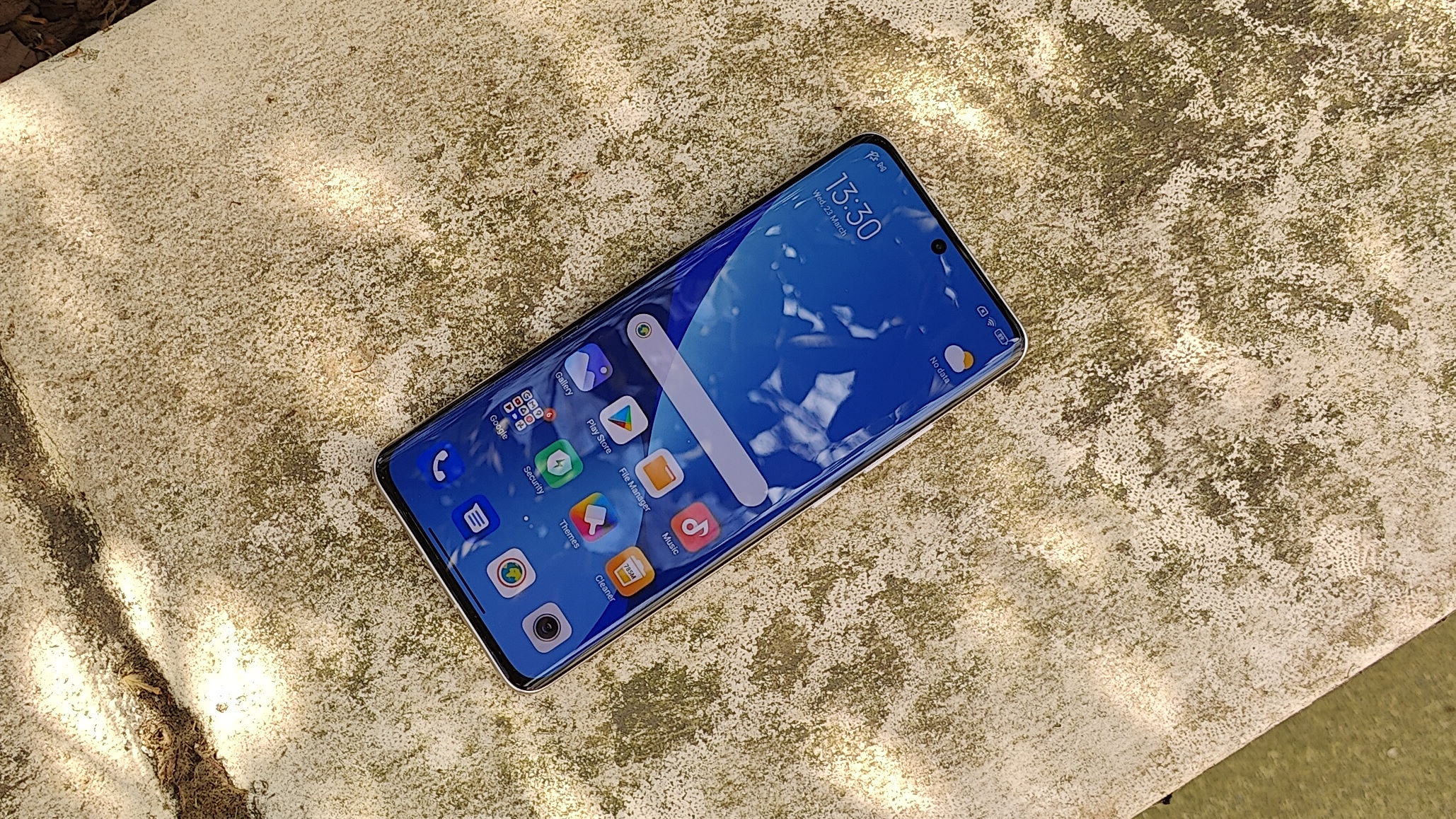
We won’t know which is the better display until we’ve spent more time with both phones. All we’ll say right now is that Samsung has an advantage in any screen competition, since it makes the vast majority of mobile OLED panels on the market.
Camera
Both phones deliver triple-camera systems, and that isn’t where the similarities end.
The main Xiaomi 12 camera is a 50-megapixel wide sensor with an f/1.9 aperture. The Galaxy S22 also offers a 50-megapixel main sensor, but with a slightly wider f/1.8 aperture. Both phones utilize pixel binning to achieve clearer results.
With the ultra-wide, the Xiaomi 12 gives you a 13-megapixel 123-degree sensor with an f/2.4 aperture, while the Samsung Galaxy S22 gives you a 12-megapixel 120-degree ultra-wide with an f/2.2 aperture. The Xiaomi’s lens is slightly wider, but the Samsung’s sensor is larger and brighter.
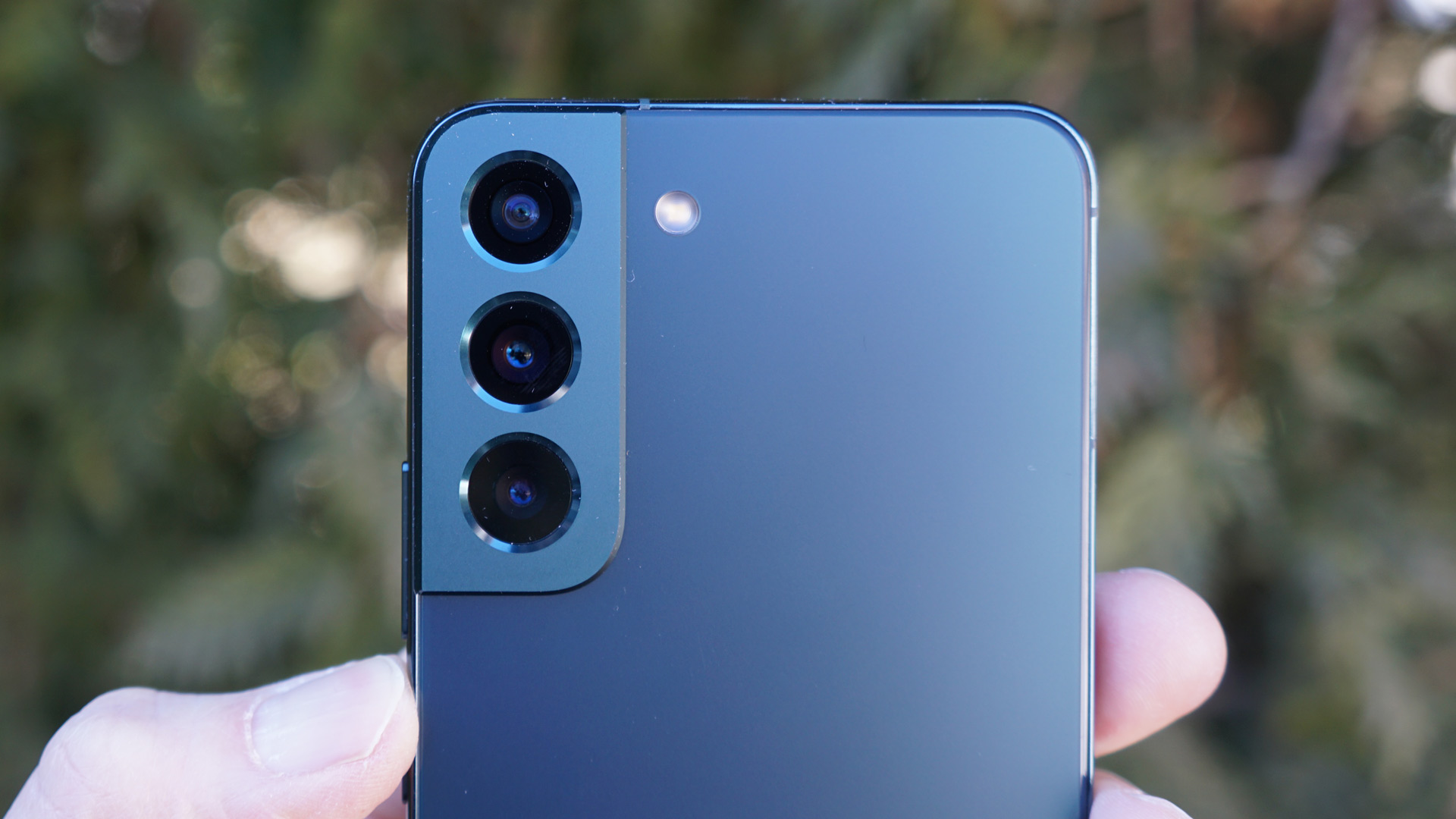
The real difference here is with that third sensor. The Xiaomi 12 includes a 5-megapixel ‘telemacro’ for extreme close-ups, while the Galaxy S22 comes with a proper 10-megapixel 3x telephoto. Samsung wins on the zoom front, then.
The Samsung Galaxy S22 front camera is a 10-megapixel sensor, while the Xiaomi 12 lays on a more impressive-sounding 32-megapixel sensor. Whether the latter equates to better selfies remains to be seen, however.
Specs and performance
Both of these phones run on Qualcomm’s Snapdragon 8 Gen 1 chip, although that won’t be the case with every Galaxy S22. As is usual for Samsung, the global model of its flagship phone runs on the company’s custom Exynos chip.
In this case, it’s the Exynos 2200, which represents the first fruits of a partnership with GPU giant AMD. You might expect superior gaming performance as a result, but our early experience suggests that the Snapdragon 8 Gen 1 is faster all-round.
We’re not claiming a massive performance gap here, mind. These are two fast 2022 flagships, and it will be difficult to make either phone sweat.
Elsewhere, the Galaxy S22 is supported by 8GB of RAM, while the Xiaomi 12 offers two options: either 8 or 12GB of RAM. Both come with either 128GB or 256GB of storage.
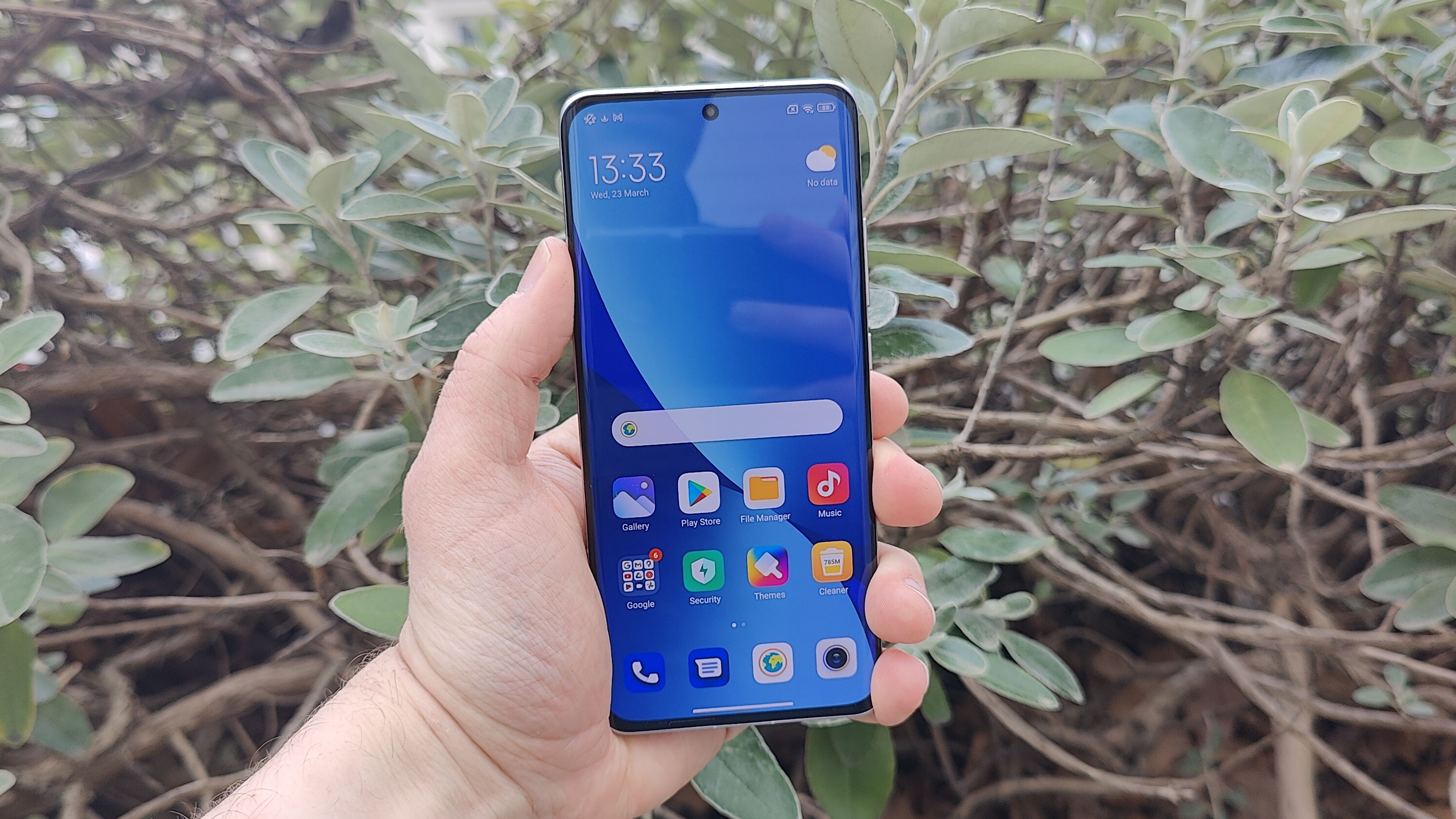
Battery
As you might expect given the size and weight difference, the Xiaomi 12 packs the larger battery of the two handsets. In fact, at 4,500mAh it’s considerably more capacious than the Galaxy S22’s 3700mAh cell.
How that translates to real-world stamina remains to be seen, but it’s difficult to see how the Galaxy S22 is going to win this one. Its screen is only slightly smaller, while it also gets brighter in direct sunlight.
Neither of the predecessors for these phones were particularly impressive when it comes to stamina, so the jury’s out in both cases.
We can already call a winner when it comes to the charging provisions, though. The Xiaomi 12 packs in a healthy 67W charger that’s reportedly capable of powering up the phone from 0 to 100% in just 39 minutes. The Samsung Galaxy S22, by contrast, only supports up to 25W charging – and it doesn’t supply a brick in the box.
There’s a similar advantage in the wireless charging stakes, with the Xiaomi 12 supporting 50W, and the Galaxy S22 only supporting 15W.
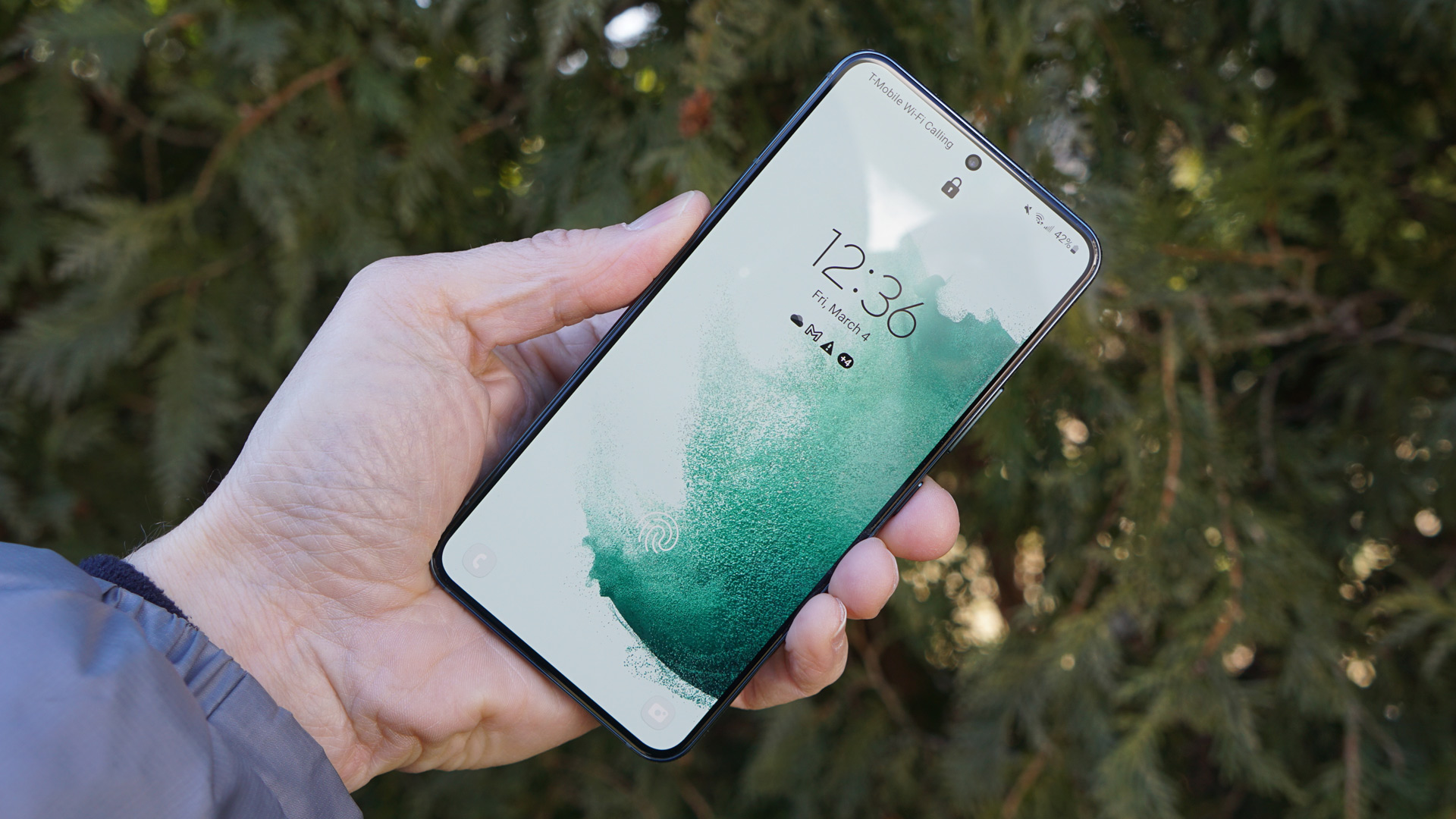
Takeaway
There seems little doubt that Xiaomi is adopting the Samsung approach by shrinking its flagship entry point this year. The Xiaomi 12 is smaller than ever, and looking to undercut the Galaxy S22 on price.
Samsung has done some shrinking of its own, and the Galaxy S22 comes in an even more compact package than its rival. There’s that price difference, though.
It’s partially explained by the presence of a dedicated telephoto lens in the Galaxy S22. The Xiaomi 12 sacrifices this fundamental flagship feature, which could prove telling.
Otherwise, the specs are largely similar, and we gave each phone a four-star review, so there's not much between them.
- These are the best Xiaomi phones

Jon is a freelance journalist who has been covering tech since the dawn of the smartphone era. Besides TechRadar, his words and pictures have appeared in The Telegraph, ShortList, Tech Advisor, Trusted Reviews, Expert Reviews, and more. He largely covers consumer technology, with a particular focus on smartphones and tablets. However, he's also been known to dabble in the worlds of entertainment and video games.